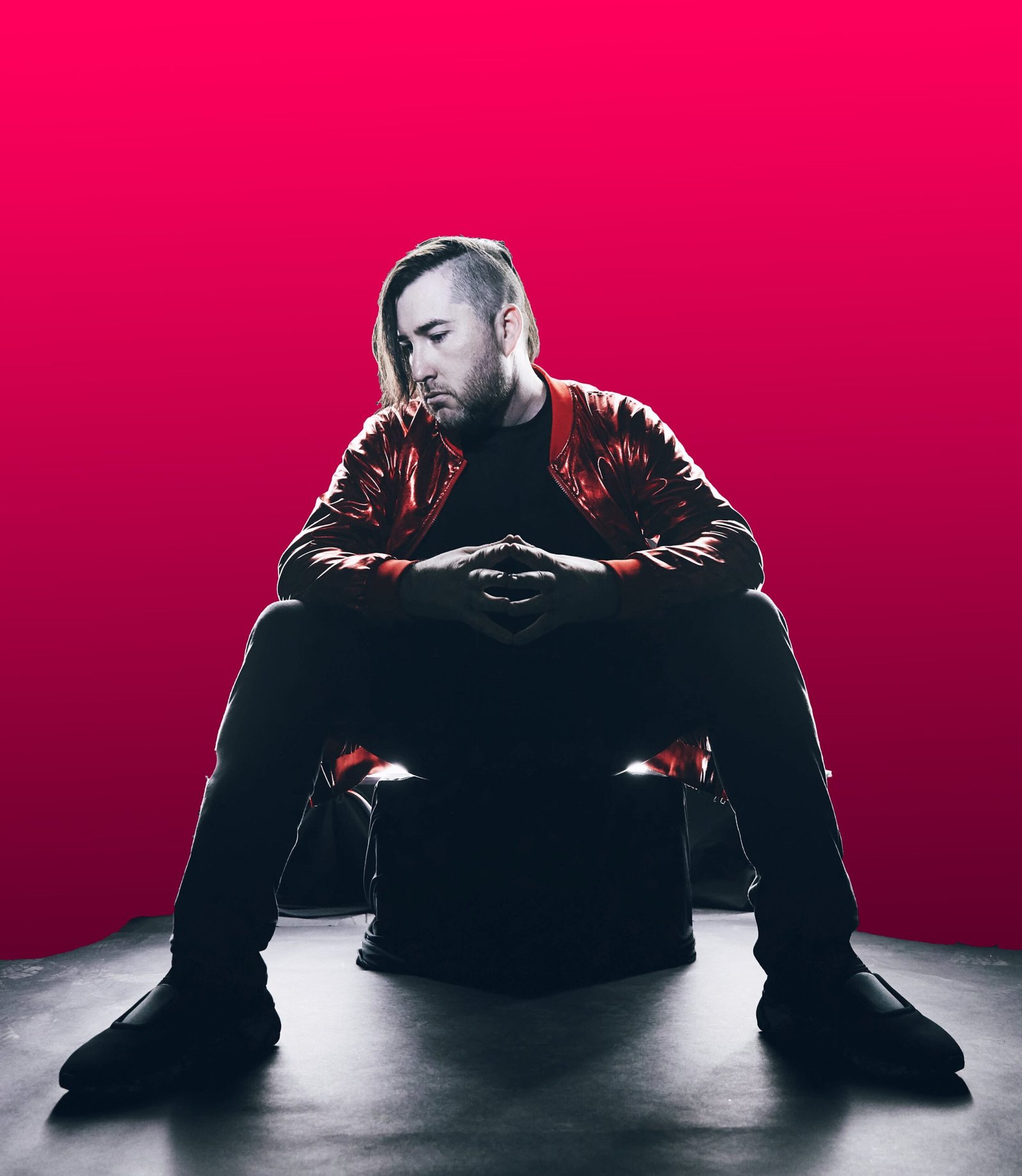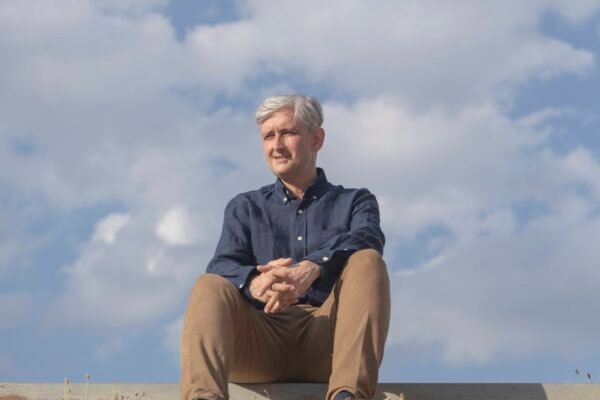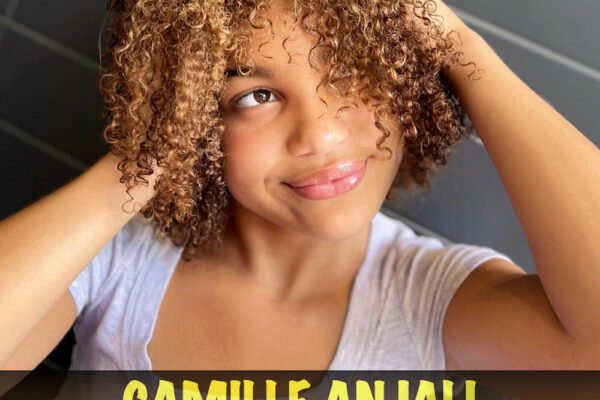Q: So let’s start here — when you think about DOPAM1NE, what’s the first feeling that comes to mind? Not the concept, not the production — just the feeling.
A: The feeling that comes to mind is a sugar rush to the point of exhaustion. At the time I wrote this album, I was feeling like a slave to my own impulses. All day, every day. Love, hate, war, sex, fun, joy, etc, we are just inundated with stimuli. That’s why Dopam1ne’s cover art is a collage of images – the songs are meant to feel like a taste of everything that we are addicted to in our society.
Q: You’ve talked before about living in downtown Seattle and seeing both the beauty and the chaos of it all — how does that environment sneak into your sound? Do you feel the city has a heartbeat that syncs with your own music?
A: Seattle is a unique place because of its juxtapositions. Seattle in its totality is both futuristic and aging, it is industrial and yet deep in nature, it is both rich and poor, it is very liberal and very conservative. For many who live in the surrounding suburbs, there are woodsy people who are watching Seattle on the news from afar. Then in the city, it’s the opposite. There are these uniquely shaped glass skyscrapers stretching far up into the sky like shrines to the largest most successful companies in the world – and down below, there is a lot of societal decay – people battling additions totally unconscious, graffiti everywhere, the occasional person screaming in a blind rage across the street, and lots of people in nice coats with backpacks walking to and from work. So, depending on what vibrations you connect with, it can all feel a bit overwhelming – and emotionally my music is all over the map partially because of this.
The sonic qualities of my latest album Dopam1ne basically sounds to me like the black-paint covered walls of the local dives and music venues. Our own little CBGBs that rumble with loud bass, heavy kick drums, and screeching guitars, with pouring rain just outside the door.
Q: You’ve been blending rock, synthwave, and pop for a while — but this record feels especially cinematic. Were you chasing that vibe, or did it just happen naturally as the songs came together?
A: I spent many years listening to some amazing concept records, from old records like Dark Side of the Moon, Pet Sounds, Sgt Peppers to newer brilliant works like Human After All, To Pimp a Butterfly & Good Kid Maad City, Deloused in the Comatorium, etc.. The thing that I really love about these types of records is their transitions – there never seems to be a start or end to anything. It’s just feelings and moments flowing in and out of each other. And for me, I have been an avid listener of music my whole life and I feel like my songwriting was me just sharing my taste in music, glueing together all the things that I love to hear.
Q: Your music often explores the darker sides of modern life — addiction, technology, overstimulation — but there’s also humor and humanity in there. How do you keep that balance without falling too far into either side?
A: My parents are artists for a living and they are charismatic, engaging, funny, interesting people. And I think I inherited their humor, but they also split up when I was very young – so I grew up under a single mother who was doing her best and art doesn’t always bring in a lot of money – there were ups and downs over the years. Over the years I developed a sort of pessimistic sense of humor when it comes to society, government, classism, and things like that. It is sprinkled with a lot of empathy because as a child, all my friends and their families were very working class, many of them immigrants, and I feel very fortunate that I was able to accidentally stumble my way to a successful career, because I know that many people are not so lucky. So my experiences and my voice does shine through in the writing.
Q: You mentioned having hundreds of little snippets of ideas lying around — do you ever go back to an old one and think, “Oh wow, that still slaps”? Or are you always moving forward creatively?
A: 100%. The thing I rarely have an excess of anymore is time. But I do have ideas spilling out of me every day. So the best I can do is to run to my studio, sit down with intense focus for 25 minutes and just record whatever I can capture at that moment and come back to it months later when it’s time to write a new song or an album. The sounds on Dopam1ne came from ideas that spanned multiple months. The songs that were on Dreams and Nightmares came from a span of 2 years. So – yeah, I love just going back into the unfinished ideas folder and just putting little green stickers on all the stuff that sounds interesting or good, and then seeing what my current day emotions and experiences might sound layered on top of those old ideas. You end up with some real interesting stuff that way.
Q: The layering in your vocals is wild — it gives the songs this sort of ghostly, cinematic width. How do you decide when something’s “done,” especially when you could probably keep tweaking forever?
A: This album was the first time I created this style of vocal. It is a combination of lots of layering, most of the album is minimum 4 layers of vox at all times. Two up the middle, two on the sides, then layered with various amounts of reverb on some of them. The result is definitely this shoegaze vibe that leans more ghostly depending on the vibe of the song overall. The way that I write is to create a piece of music, and then just listen to it as a regular listener when I walk to work. And when I listen to it that way, I often notice the things that are not working – like big moments that felt un-earned, sounds that need some polish, mix issues, lack of cohesion in the theme, etc. So I just come back to them day over and tweak and tweak until I stop noticing anything anymore. Believe it or not, there are things that do actually feel “done” after a while. But then months after it was released, there are now a couple more tweaks I would still make even now. But once it’s out in the wild, you kinda need to let it go.
Q: You recorded, produced, and mixed DOPAM1NE yourself — all in your apartment. What’s the vibe in your space when you’re deep in creation mode? Chaos? Zen? Coffee and chaos?
A: When I’m writing in short bursts – it’s usually because my spouse is gone from the house for a while. But when I’m really focused and writing for longer periods – it’s usually dead quiet in here because she’s asleep and it’s the middle of the night. I have lots of colored lighting and lots of plants everywhere weaved in between all the music gear. So it’s like I’m in a little silent neon forest. Also when I was working on Dopam1ne a lot, I would take a small rip of weed before getting into my creative headspace because it would quiet-down the inner critic in my mind and makes me feel the sound a bit more. So, I felt like I was just sort of passively experiencing the sounds I was creating and that helped me sort feel the vibe to things, and whatever wasn’t vibing, it would get thrown away quickly.
Q: You grew up surrounded by musicians, including family members who toured with The Righteous Brothers. Do you feel like there’s a piece of that era’s soul or performance energy that you’re trying to carry forward in your own way?
A: Yes definitely. The thing about being surrounded by world class musicians is that you see their habits, their practice, their voice through their craft. It sets the bar for what you think is “good” playing. I suppose this would also be true if your dad played in the NBA or something…you’d probably start off early practicing the right habits and end up a good basketball player yourself (this was certainly the case for Steph Curry lol). But overall there is a threshold of skillfulness and fluency on the instruments and equipment where it stops being about the mechanics of playing and starts being more about their ability to express themselves – feelings, moods, ideas. I spent a lot of effort trying to make Dopam1ne feel a certain way, and I cared a lot less about how I got there.
Q: You’ve said before that this record feels like “the closest you’ve come to making the music you’ve always wanted to make.” What clicked this time that maybe didn’t before?
A: Yeah – in my previous albums, there are a lot of songs that are functionally correct but they ended up conveying a mood or feeling that I didn’t intend. And over the years, I’ve been working on nailing down the feeling. Dopam1ne feels like how I wanted it to feel. That is the thing that was successful for me this time. Also just like my favorite concept albums, I spent a lot of time making the sounds and moments flow into each other, and that made the record a lot more fun to listen to, I think.
Q: You have this hacker’s mindset — breaking things apart, rebuilding them, remixing the world around you. How does that translate into your creative process as a musician?
A: One of my favorite things in music is to try to turn dirt into gold. I love taking a random sound or effect and trying to write a whole song around it. This was the case for an old track called “What we used to be” – I had found a plugin by Polyverse called “I wish” that just takes any piece of sound, and then just breaks it into small microsecond long slices and then maps it on a keyboard. What you end up with is like this robotic, buzzing, electrical sounding resampling of the original sound. So I sang a soulful short melody, played it through the “I wish” plugin and then produced a whole song around it. Sometimes these effects can be used to actually evoke a feeling: for example, on another song of mine called “How you really feel” – that song was about the distorted / transactional social connections I was feeling from people at that time – and so I used the “I wish” plugin to distort my own words, like “How you really feel, how you really fe[e|||||||e]el about m[e|||||||e]” 😀 So yeah, these things might seem superficial, but they actually end up helping me express something that wouldn’t have shined through otherwise.
Q: The track “Dopamine” feels both like a love song and a cautionary tale — when people tell you how they interpret your songs, does that ever surprise you? Or do you kind of expect everyone to bring their own meaning to it?
A: You can’t really control how people interpret your music because everyone is going through their own journey and are dealing with things in their lives or with their families. For example, I wrote a song called Chemistry, which was about a near death experience I had where I had anaphylaxis and suffocated and lost consciousness. In the song, there is a line, “today is a good day to die / said something inside / the chemistry of me / doesn’t want to be / alive”. It was referencing that medical scare I had. A few months after it came out, someone contacted me on social media and told me that they had been dealing with depression and that the words had described how they felt. Reframed through that lens, I could see how the words also make sense, and for them, the song belongs to them, not me.
Q: And finally — looking ahead, what’s next for you for the rest of the year? Any new directions, collabs, or live projects on the horizon that you’re excited about?
A: For the rest of the year, I’m focused on just getting through the holidays, some light travels for family stuff. But musically, I would love to start writing more with other artists. I don’t really get out to shows a whole lot because I have a lot of work stuff on my plate. But if I can, I want to work on more collaborations with other artists – so if you’re out there and wanna write together, hit me up 🙂
Listening to songs so you don’t have to! Just kidding :D, you totally should. Music blogger by day, nurse by night





